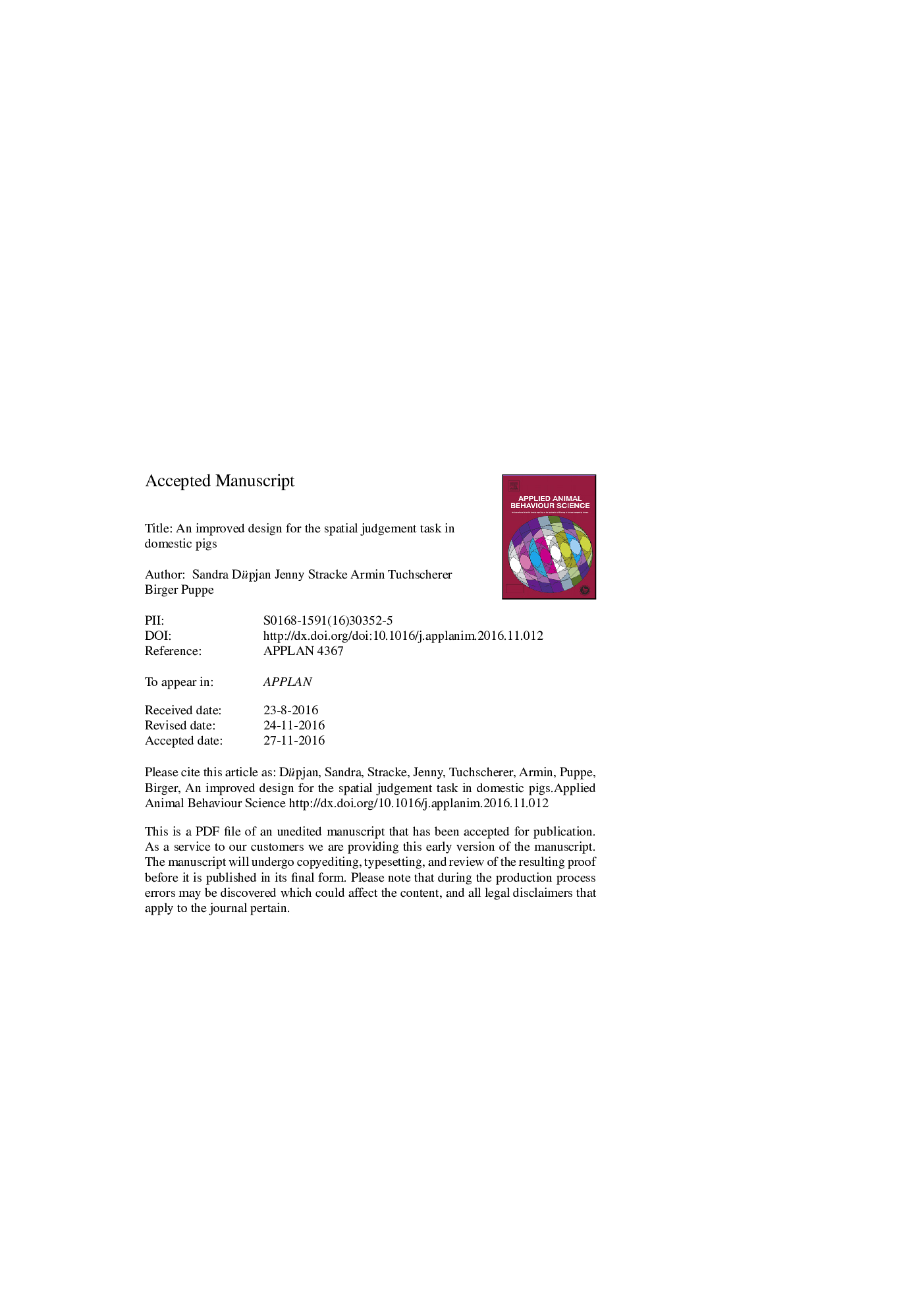| Article ID | Journal | Published Year | Pages | File Type |
|---|---|---|---|---|
| 5763317 | Applied Animal Behaviour Science | 2017 | 27 Pages |
Abstract
Public concern for farm animal welfare calls for reliable scientific tools to measure it. Measuring cognitive bias, i.e., the influence of affective states on cognitive processing, has gained importance during recent years. The one most often adapted experimental design to test cognitive bias in non-human animals is the spatial judgement task, where animals must judge a goal box/pot based on its location. First, they learn to discriminate between a positively reinforced and a negatively reinforced location, and then they are confronted with ambiguous, intermediate locations. The responses to these so-called probe cues are assumed to be influenced by the animal's affective state. Current methods for the assessment of cognitive bias in domestic pigs, one of the most intensively housed farm animal species in Europe, still need to be refined and validated. Hence, we developed an improved, reliable design to test pigs repeatedly and induce graded responses to graded probe cues. For this, we used a spatial judgement task in a go/no-go paradigm with partial reinforcement and a mildly aversive negative reinforcer. A total of 16 female juvenile German Landrace pigs underwent discrimination learning of the rewarded vs. punished goal box location; this was then repeatedly tested on three probe locations in between (eight times in four weeks). The subjects learned to discriminate between the two reference locations and showed graded responses (latency to open the goal box) to the probe locations. Analyses of the subjects' general behaviour implied that additional information on the animals' state can be derived. The subjects showed no signs of learning with respect to the outcome of probe cues but exhibited stable response levels during test weeks two to four. In conclusion, the design presented in this paper is suitable for spatial judgement tasks in domestic pigs. After successful validation it might be used for testing affective valence based on judgement bias and hence can contribute to our understanding of the welfare of this intensively farmed species.
Keywords
Related Topics
Life Sciences
Agricultural and Biological Sciences
Animal Science and Zoology
Authors
Sandra Düpjan, Jenny Stracke, Armin Tuchscherer, Birger Puppe,
